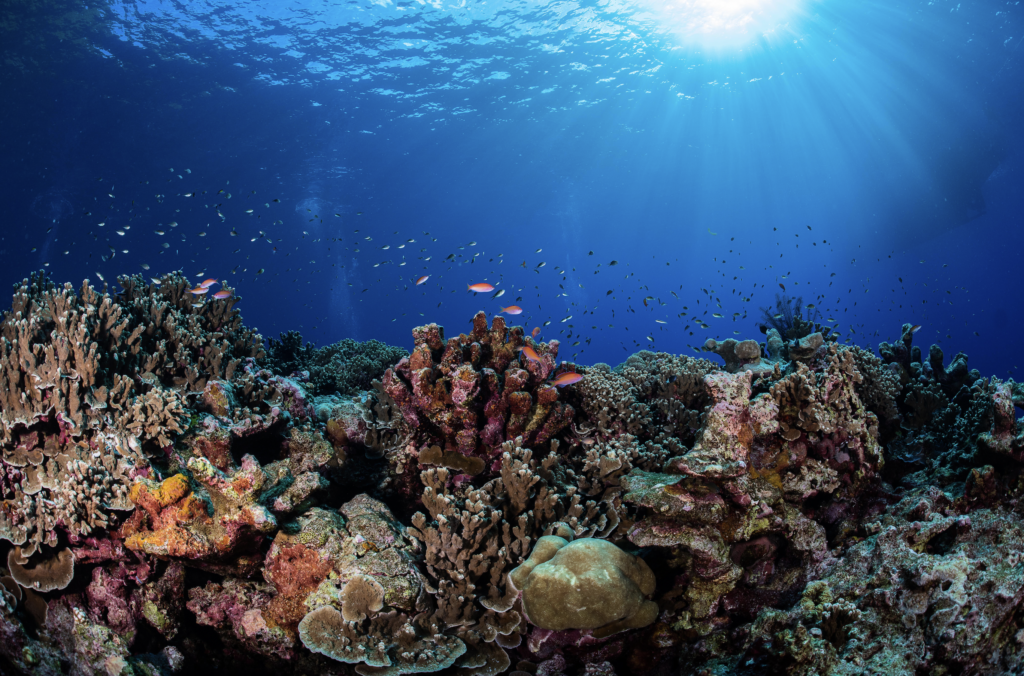Flush and forget? Not so fast. Wastewater is a bigger deal than you might think. Around the world, sewage pollutes oceans, harms coral reefs, and threatens our health. But it doesn’t have to.
By connecting homes, businesses, and tourist facilities to community-supported wastewater treatment plants, we can significantly reduce the amount of harmful pollutants discharged into the ocean.
These systems remove contaminants that contribute to coral bleaching, disease, and reef degradation. Properly treated wastewater ensures that clean water supports the delicate balance of marine ecosystems, helping coral reefs adapt to rising ocean temperatures. Additionally, community education and government collaboration play crucial roles in maintaining these systems and promoting sustainable practices. Through these combined efforts, we can protect and preserve coral reefs for future generations.
Saving coral reefs with wastewater solutions has clear, tangible impacts, which is why we’re focusing our efforts on expanding this work. Keep reading for ten ways properly treated wastewater can revolutionize reef and community health.
1. Cleaner Water = Healthier Coral Reefs
This may seem obvious, but it’s worth overstating.
Science tells us corals can adapt to a warmer ocean if they have clean water and healthy fish populations. Contaminants and pathogens in untreated wastewater can lead to increased stress and susceptibility to disease in corals. Wastewater infrastructure helps reduce or even eliminate pollutants and contaminants in the ocean, improving overall water quality.
Providing clean water to these areas can help prevent coral bleaching and disease, allowing corals to grow and thrive. Clean water ensures a healthier environment for coral growth and resilience, and the benefits of this are invaluable.
Read more about untreated wastewater in our Clean Water for Reefs Toolkit >

2. Biodiversity Boost
Not only does supporting a diverse range of marine species enhance the entire ecosystem, but it’s also a major pillar in climate adaptation. Coral reefs support a quarter of all marine life, and clean water helps maintain the delicate balance required for these ecosystems to flourish.
3. Improved Fisheries
Healthier reefs lead to more abundant fish populations, benefiting corals and local fishing industries. Coral reefs provide essential habitats for many fish species, and cleaner water supports their breeding and feeding grounds.
4. Tourism Growth
Who wants to swim in dirty water? No one.
Pristine reefs attract more tourists to coastal communities, boosting local economies reliant on diving, snorkeling, and beach activities. Clean water ensures that coral reefs remain vibrant and appealing to visitors, promoting sustainable tourism.
5. Safer Beaches
Cleaner water means safer, more enjoyable beaches for swimming and recreation. Reducing the contaminants that reach coastal areas ensures that beaches remain inviting and free from health hazards.
6. Community Health
Reducing exposure to waterborne diseases drastically improves public health in coastal communities. Proper wastewater treatment prevents the spread of pathogens that can cause serious illnesses in humans.Did we mention 80% of coastal communities don’t have properly treated wastewater?
Help us expand our work by making a donation >
7. Economic Stability
Sustaining livelihoods dependent on marine resources and tourism promotes economic resilience. Healthy coral reefs support industries such as fishing and tourism, which are vital to the economies of many coastal communities. They also act as natural barriers against storm surges and erosion, preventing the destruction of coastal properties and loss of land and saving money on coastal defense measures.
8. Carbon Sequestration
Healthy reefs play a crucial role in carbon sequestration by absorbing and storing carbon dioxide through calcification. Corals and other reef-building organisms use carbon to form calcium carbonate structures, which make up the reef. This process helps mitigate the impacts of climate change by reducing the amount of carbon in the atmosphere. Additionally, the dense and diverse ecosystems supported by coral reefs contribute to the overall carbon storage capacity of marine environments, enhancing their role in global carbon cycling and climate regulation.
9. Educational Opportunities
Wastewater treatment plants and processes create avenues for environmental education and awareness to help foster a culture of conservation and sustainable practices. Clean water initiatives provide opportunities to educate the public about the importance of protecting coral reefs and the role of wastewater treatment in maintaining ocean health.
Clean water is essential for the survival of all things, especially coral reefs and the overall health of our oceans. By addressing wastewater issues, we directly impact the preservation of these vital ecosystems. Join us on our journey to better wastewater management by supporting our Clean Water for Reefs campaign and help us protect the future of coral reefs. Learn more and be a part of the solution.

